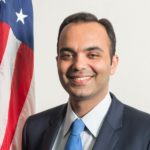
Consumer Financial Protection Bureau Director Rohit Chopra is pledging to take a stronger stand against bank overdraft and non-sufficient fund fees by enhancing supervisory and enforcement scrutiny of financial institutions “that are heavily dependent on overdraft fees.”
Chopra’s statement came the same day CFPB research revealed that smaller banks are charging 13.2 percent less in overdraft fees than financial institutions with $1 billion or more in assets. Small banks with an overdraft program on average make $40.37 in annual overdraft revenue per account, 11 percent less than large banks, respectively.
Smaller banks were also less likely to allow customers to opt into a debit card overdraft program. The CFPB has previously found that overdraft presents major risks to consumers, with less than 9 percent of consumer accounts paying 10 or more overdrafts per year, accounting for close to 80 percent of all overdraft revenue.
“Rather than competing on quality service and attractive interest rates, many banks have become hooked on overdraft fees to feed their profit model,” Chopra said. “We will be taking action to restore meaningful competition to this market.”
The CFPB has pursued action against banks over overdraft program practices before. New Jersey’s TD Bank was ordered to pay $122 million in penalties and customer restitution last year over its overdraft fee practices. In 2018, TCF Bank (now part of Huntington Bank, Columbus, Ohio) paid $30 million in penalties and restitution over allegations it “tricked” consumers into enrolling in its overdraft protection program.
The American Bankers Association spoke against Chopra’s comments. ABA President and CEO Rob Nichols noted that customers have multiple tools to help them manage accounts and avoid overdrawing from their accounts, including text alerts about low balances and the chance to digitally monitor their accounts. He noted the CFPB’s own research showed that non-sufficient fund and overdraft fees fell by more than one-quarter last year.
“A more comprehensive analysis by the CFPB would have provided this important context and served to better inform consumers about the choices available to them,” he noted. “Instead, the research released today unfortunately uses dated information to unfairly criticize banks for providing services many Americans appreciate and value.”
Banks reported an estimated $15.47 billion in overdraft and non-sufficient funds revenue in 2019. Of those, JPMorgan Chase, Wells Fargo and Bank of America brought in 44 percent of the total reported for banks with more than $1 billion in assets.
